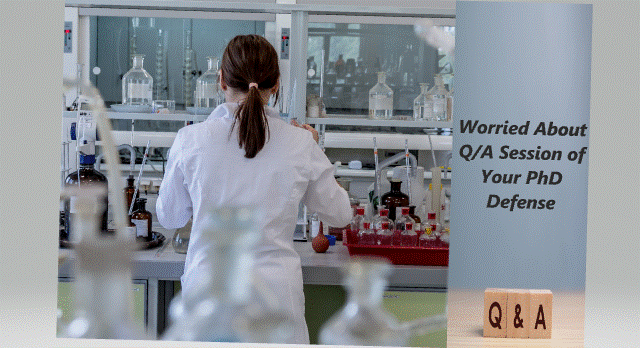
Worried About Q/A Session of Your PhD Defense? Here Is a Complete Guide to Handle Q/A Sessions Effectively
PhD is the highest degree that you can earn. There are several requirements for completing this educational degree. You will write a PhD dissertation in your relevant field. After completing it, you will present and defend it as well. There will be two external examiners and your supervisor in your PhD defense panel. Apart from this, there will be a defence chair and an audience. You will defend your work in the presence of these people. After that, there will be a Q/A session about your PhD research work. This is a great learning opportunity for you and future researchers. You will also get valuable feedback about your research work in this way. You need to prepare for the Q/A session of PhD defence. If you fail to prepare, it won’t be easy to defend your work. So you should make sure to schedule this most important aspect of your defence.
Tips for How to Handle Q/A Sessions Effectively
This article aims to discuss how you can handle the Q/A sessions of your PhD defence. It would help if you worked on the following steps for taking Q/A sessions. So let’s discuss those steps in detail;
1. Be Prepared:
It is one of the most important tips for handling Q/A sessions of PhD defence. It would help if you worked on this aspect when preparing for your PhD defence presentation. This way, you will get to know the potential questions about your work. You can even make a list of those questions. You can break down those questions according to different parts of your work. It will help you in relating these different sections of your work. So it would help if you wrote down as many questions as possible. This way, you will effectively handle the Q/A session.
2. You Can Start Discussion:
Starting a discussion is another way of handling the Q/A session of your PhD defence. The defence panel and the audience will ask you many questions about your work. The prime purpose of these questions is to check the credibility of your work. It will also help them in knowing how you completed your work. Apart from this, they will see the significance of your well. So when they ask you a question, you can start a discussion. This way, you will involve your audience in the Q/A session. According to an expert research analyst, Larcreate should start conversations involving your audience handling Q/A sessions. This will increase the audience interest and engagement. This finding was published in her research report at dissertation writing services for PhD.
If You Do Not Know the Answer, Say It:
It is another important aspect of handling the Q/A session. As mentioned earlier, you should prepare for the Q/A session. But it is possible that you might not drill all the aspects of your work. ItYouight have to answer a question that you failed to prepare. If you do not know the answer to a question, you should say it. It is better to accept your ignorance rather than give a wrong answer. It may be difficult to say sorry for a question, but it’s alright. You can say that the question is beyond your research scope. This way, you will handle the Q/A session of your PhD defence effectively.
3. Be Polite:
You should make sure to be polite in the Q/A session for handling it effectively. It will help you a lot in your PhD defence. You should make sure to start your answer politely. You can even thank the person who is asking you a question. So, You may fail to understand the context of the question. If you cannot understand the question, you can ask the person to elaborate on it. You might have to deal with the harshness if you’re failing to satisfy your audience with your answers. But it would help if you always remained polite and respectful.
4. Take Criticism Constructively:
You should make sure that you’re taking criticism constructively. You might have to face it because of your work and its nature. So, You can even face it when you’re handling the Q/A session. But it would help if you did not take it personally. It would help if you took it constructively. This way, you will learn new things and overcome your shortcomings.
Conclusion
This article discussed how you could deal with the Q/A sessions of PhD defence effectively. You can prepare a list of potential questions in this context. It will help you in handling this session. Apart from this, you should remain polite and take criticism constructively. If you don’t know the answers, you should say it. Following these steps will help you in handling the Q/A session effectively.
















